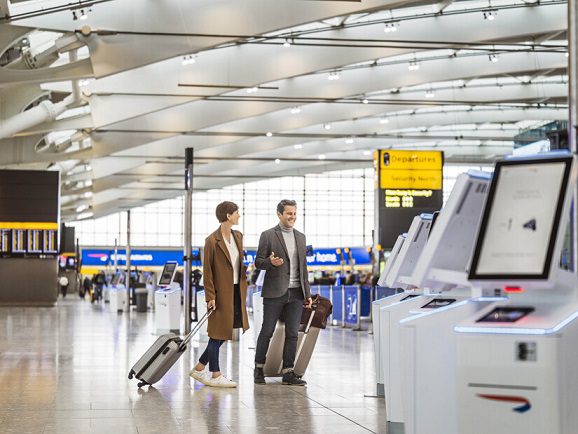 From pioneering autonomous decarbonized baggage trucks to using Bluetooth technology to cut single-use plastic waste from in-flight entertainment headphones, the second Sustainable Flight Challenge by global airline alliance, SkyTeam, has generated more than 500 submissions to help drive a greener future for air travel. Winners of the 25 subcategories have been decided by an expert panel of sustainability, innovation and aviation experts, including the Dutch Aerospace Center (NLR) and PA Consulting. Now, finalists are pitching their ideas to a globally diverse jury of industry and sustainability leaders to determine this year’s winners of the Challenge’s seven overall awards.
From pioneering autonomous decarbonized baggage trucks to using Bluetooth technology to cut single-use plastic waste from in-flight entertainment headphones, the second Sustainable Flight Challenge by global airline alliance, SkyTeam, has generated more than 500 submissions to help drive a greener future for air travel. Winners of the 25 subcategories have been decided by an expert panel of sustainability, innovation and aviation experts, including the Dutch Aerospace Center (NLR) and PA Consulting. Now, finalists are pitching their ideas to a globally diverse jury of industry and sustainability leaders to determine this year’s winners of the Challenge’s seven overall awards.
The Sustainable Flight Challenge (TSFC), the first industry sustainability initiative of its kind, was launched by SkyTeam in 2022. This year’s Challenge was even bigger than the first and included SkyTeam ‘friends and family’ airlines in addition to SkyTeam members. In total 22 airlines participated, operating 72 round-trip short-, medium- and long-haul flights – an increase of 38% and 227% respectively versus the previous year. Overall, this year’s TSFC resulted in an average improvement of 19% in CO2 intensity compared to the same flights operated the previous month.
Patrick Roux, SkyTeam CEO, said: “Thanks to the energy, enthusiasm and creativity of the more than 2,000 airline employees involved, this year’s TSFC eliminated 30 tons of CO2 emissions during the two-weeks of the Challenge. When it comes to operating more responsibly, The Sustainable Flight Challenge demonstrates how even small changes add up to make a big difference when we work together.”
The Sustainable Flight Challenge reaches new heights in 2023
All participating airlines agree to share their findings with other carriers so eco-conscious best practice in flying can be adopted more widely across the industry. Of the hundreds of innovations generated by last year’s challenge, 90 have been adopted by participating airlines in this year’s TSFC. This year, 11 airlines used Sustainable Aviation Fuel (SAF) up from four last year and 37% of Ground Support Equipment (GSE) used was electric.
Airlines shortlisted for the seven TSFC main award categories are:
Lowest CO2 Emissions: Air Europa, TAROM, Xiamen Air
Greatest CO2 Reduction: Korean Air, China Eastern
Lowest CO2 Emissions Ground Ops: Delta, Xiamen Air
Best Waste Management: ITA Airways, KLM Cityhopper
Best Innovation: Aeromexico, Air France, Delta, Kenya Airways, KLM, Saudia, Vietnam Airlines
Best Adoption: China Airlines, KLM, KLM Cityhopper, Xiamen Air
Best Collaboration: Air France, China Airlines, China Eastern, KLM, Saudia
The Jury is currently evaluating all subcategory winners’ efforts based on the airlines’ pitches in Innovation, Adoption, Collaboration. Winners will be announced at a special TSFC event held at Delta’s hub in Atlanta in October.




















